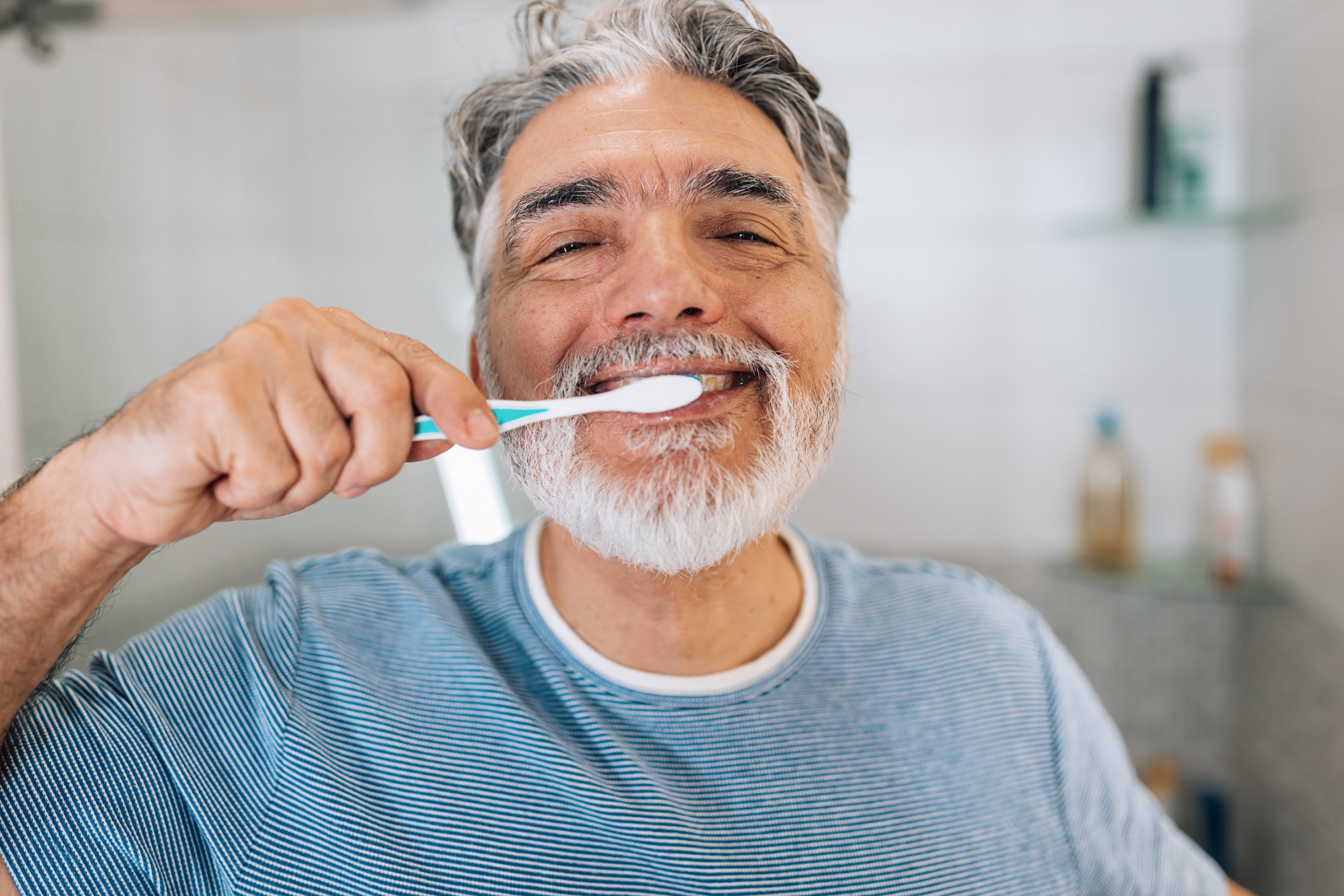Why Oral Health Is Critical to Seniors’ Health
August 25, 2023 | Healthy lifestyles

Oral health is essential for our overall health and well-being, especially as we age. Older adults face additional challenges with oral health, so maintaining good oral hygiene becomes even more important.
How teeth change as we age
Your teeth have taken you through a lifetime of meals, and the wear and tear eventually add up. That can include receding gums, shifting teeth, and thinning tooth enamel. On top of that, seniors typically produce less saliva than younger adults. All of that makes them more susceptible to cavities, gum disease, oral cancer, and tooth loss.
Another factor of diminishing oral health is that older adults may struggle with brushing, flossing, or regular dental checkups because of chronic disease, physical limitations, poor vision, or transportation issues.
How oral health impacts overall health
When it comes to oral health, many people think only about cavities, periodontal disease, and bad breath. Even more of us think taking care of our teeth is essential for cosmetic reasons. In truth, oral health is closely linked to overall health.
Emerging research has found that poor oral hygiene and periodontal disease can be linked to severe health issues like heart disease, diabetes, dementia, oral cancer, and respiratory infections. In addition, a healthy smile can positively impact a senior’s social life and self-esteem. A vibrant social life can reduce feelings of isolation and loneliness, which are common concerns for older adults. Seniors who maintain good oral health are more likely to feel confident in professional and social situations.
Oral hygiene tips for seniors

Proper oral hygiene will reduce your risk of problems such as toothaches, tooth decay, and tooth loss. For seniors with chronic conditions such as heart disease and diabetes, developing a daily dental hygiene routine is even more critical. The following tips will help you keep your teeth and gums healthy as you age.
- Visit your dentist regularly. Schedule regular dental checkups and cleanings at least every six months or as your dentist recommends. This will allow you to avoid and catch potential problems. Consider using an electric toothbrush, and brush for at least two minutes.
- Brush and floss daily. You’ve heard it countless times. And it’s true! Brushing and flossing daily is still the best way to ensure the health of your teeth and gums. Always brush with fluoride toothpaste and floss twice daily between teeth to remove plaque.
- Watch for changes in your mouth. Watch for and report any worrisome changes in your mouth to your dentist. Seniors should see their dentist if they notice any of these symptoms:
- Tooth pain
- Chronic dry mouth
- A spot in your mouth or lip
- Trouble chewing, swallowing, or moving your tongue or jaw
- Sores that won’t heal
- Bleeding gums
- Maintain a healthy lifestyle. Many healthy habits that benefit our physical health also help our teeth. Avoiding tobacco, limiting alcohol, staying hydrated, and eating a balanced diet are essential to oral hygiene.
You want those pearly whites to last a lifetime! Good oral health is crucial to seniors’ overall health and well-being. Remember—good oral hygiene isn’t just about appearances. It can be a factor in helping older adults live long and healthy lives.

